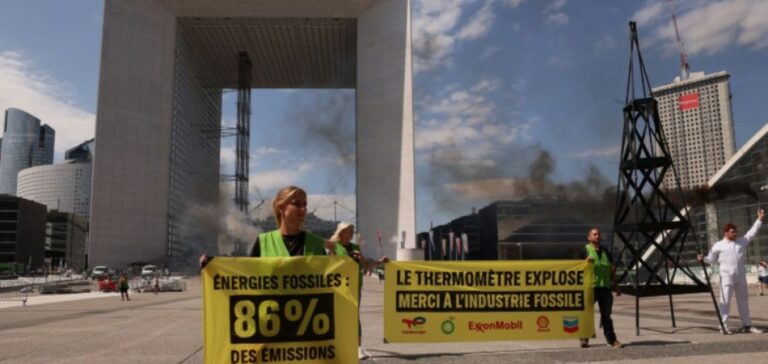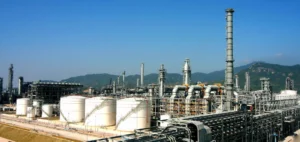COP28 in Dubai takes place in a few months’ time, at the beginning of December, while the oil giants face increasing pressure. Environmental NGOs accuse them of gradually abandoning their decarbonization objectives. These actions are designed to please their shareholders and bankers.
UN and NGOs point the finger at fossil fuels
“The problem (…) is fossil fuels themselves, period”, declared UN Secretary-General Antonio Guterres in June, pointing the finger at oil, gas and coal as the culprits behind the heatwaves that engulfed Hawaii, Canada and Greece this summer.
Fossil fuels are “incompatible” with the survival of mankind, added Mr. Guterres, who is hosting an international summit on climate ambition in New York in September, even before COP28, chaired by a Gulf oil company boss. Last Wednesday, Greenpeace picked up on this information by publishing a report. In this report, the NGO accuses Europe’s gas and oil companies of doing nothing for the energy transition. What’s more, she accuses them of completely failing to meet their climate commitments. These allegations are highlighted by Greenpeace in this report.
Fossil fuel investments: Alarming results from European companies
According to the NGO, which analyzed the 2022 results of Europe’s 12 leading oil and gas companies, an average of 92.7% of their investments were devoted to fossil fuels last year. And only 7.3% was directed towards “sustainable energy production and low-carbon solutions”. Greenpeace also criticizes the fact that renewable electricity production – which does not emit CO2 and therefore does not contribute to global warming – by these 12 companies represents just 0.3% of the energy they produce, compared with 99.7% from oil or gas.
Call for Strict Regulation: Oil Majors Under Pressure
The NGO condemns the lack of a “coherent strategy” from these majors, despite the fact that most of them have committed to becoming carbon neutral by 2050, and have reaped historic profits in 2022.
Greenpeace is calling on European governments to implement “strict regulation of the fossil fuel industry” to force it “to change course” by “halting all new oil and gas exploration projects”, and “reducing its production of fossil fuels”.
“Less than 1%” of TotalEnergies’ energy production “came from renewable energy sources” in 2022, asserts the NGO, while 88% of its investments were still directed towards fossil fuels and the group plans to “increase its gas and oil production in the coming years”.
Figures not denied by the French hydrocarbon giant, which instead points to progress: “TotalEnergies’ investments in energy transition have risen from 2 billion euros in 2020 to 3 billion in 2021, then 4 billion in 2022,” the group said in a brief response sent to AFP.
Dividends, Transition and Doubts: The Challenges Facing Oil Companies in the Energy Transition
“In 2023, TotalEnergies will invest nearly 5 billion euros in renewable and low-carbon energies, and will thus for the first time devote more investment to low-carbon energies than to new hydrocarbon projects,” adds the French group.
“TotalEnergies is the oil group most involved in the energy transition,” said CEO Patrick Pouyanné in an interview with Le JDD in mid-June.
Oil companies are “obliged to pay high dividends so that pension funds can keep their shares”, warns Robert Bell, professor of management at Brooklyn College of the City University of New York, in an article published in the daily Le Monde on August 19.
In particular, he shows how Shell “fell into the trap of the stock market”, with the ousting of its “visionary” CEO, engineer Ben van Beurden, who “committed the unpardonable sin of cutting dividends” as he tried to “transform the company into a renewable energy giant”.
The same applies to BP, “which also had a visionary CEO”, according to Mr. Bell: “he changed the name of the company to Beyond Petroleum”, made “significant investments in renewable energies” before “suddenly resigning” over a private matter.
“After that, the focus shifted back to oil,” says Bell.
The expert doubts the oil companies’ assurances of their commitment to the energy transition.
“It’s doubtful that an oil company can lead the world away from oil,” he quips.





















